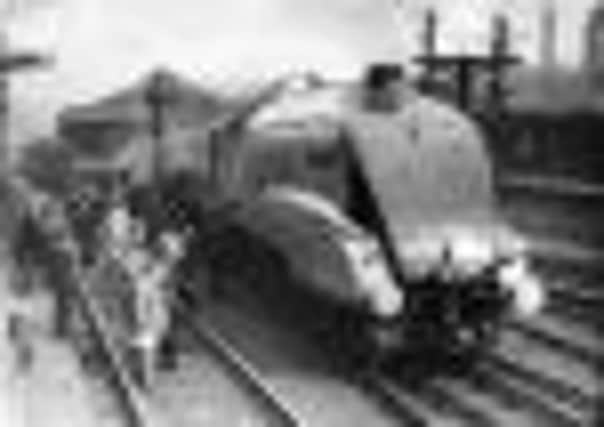Fast track into past as railway workers’ records go online


Given the bad press they receive these days it’s hard to imagine a time when a job on the railway was one of the most coveted in the country.
Yet back in the Victorian era when no one had yet heard of the wrong time of snow and leaves on the line were just brushed off, the railways were an attractive prospect. In fact the job of an engineman 1st class – or train driver – was so desirable that men often starting out as a labourers or cleaners were prepared to work for up to 25 years before actually driving a train.
Advertisement
Hide AdAdvertisement
Hide AdThe railways were what kept Britain moving and now for the first time thousands of records chronicling the life and times of those who worked on the tracks and the trains have just been published online.
It’s another coup by website Ancestry.co.uk, whose dominance of online genealogy continues and while it’s latest section, Railway Employment Records 1833-1963, may not have the catchiest of titles it is being dubbed the ultimate trainspotters’ archive.
“The records dates back to the invention of the locomotive in the early 19th century and include details of almost two million workers,” says the site’s international content direct Dan Jones. “They begin in 1833, a time when the Great Western Railway, which was engineered by Isambard Kingdom Brunel, was still in its infancy. By the middle of the 20th century, the entire rail network encompassed 6,000 stations, covered 21,000 miles of track and its development was widely hailed as a catalyst for Britain’s industrial growth.
“However, the records show that unlike today’s dream jobs, the role hardly delivered fame and fortune with the average wage of a 19th century train driver the equivalent to just £10,000 today.”
Advertisement
Hide AdAdvertisement
Hide AdWhile there was no shortage of applicants, working on the railways was also extremely dangerous as the country got to grip with this new technology. As the records released today show, prior to 1900 there were 98 major accidents resulting in hundreds of fatalities and more than 2,000 serious injuries, all recorded in meticulous and sometimes graphic detail.
“With stakes so high, the rail companies introduced a series of strict reprimand systems whereby staff members were punished for behaviour that was deemed irresponsible or dangerous,” adds Dan. “These varied from minor fines to major disciplinary actions where the worker would be suspended without pay or fired. In the records we have just published we found examples of workers being ‘inebriated’ while at the engine, drivers demoted for running red signals and staff fighting amongst themselves while on duty.
“At the same time rail workers were actively rewarded for taking action that prevented possible accidents, with the good deed marked in red ink on their personal records and rewards of up to two weeks’ wages issues.”
The collection covers the period the rail network was temporarily brought under government control during the First World War and its full nationalisation at the end of 1945.
Advertisement
Hide AdAdvertisement
Hide Ad“These records shed light on what it must have been like to work on the railways in its early years – a dangerous job with strict rules and severe reprimands for error, but with the promise of reaching that highly-coveted role as an engine driver,” adds Dan.
“The level of detail within the records is also staggering, which means family history enthusiasts can gain a real insight into their ancestor’s character, be it through records of promotions and rewards or perhaps punishments and demotions.”
The majority of the employment records date from around the late 1940s and detail not only the name and date of birth of each employee, but also information on their career progression and notes from superiors on their character and behaviour.
Caroline Kimbell, head of licensing at The National Archives, which helped with the collection, adds: “The Railway Employment Records are one of the largest and earliest archives of civilian trades in the UK. The records reveal fascinating stories about life on the railways from their early, dangerous beginnings to their heyday as a key component of Britain’s Victorian infrastructure, and reflect the significance of the railway companies as huge employers in both towns and country.
Advertisement
Hide AdAdvertisement
Hide Ad“Many families will find railway ancestors here, and the level of detail in these records make them a valuable online resource for historians and rail enthusiasts alike.”
To access the archive visit www.ancestry.co.uk